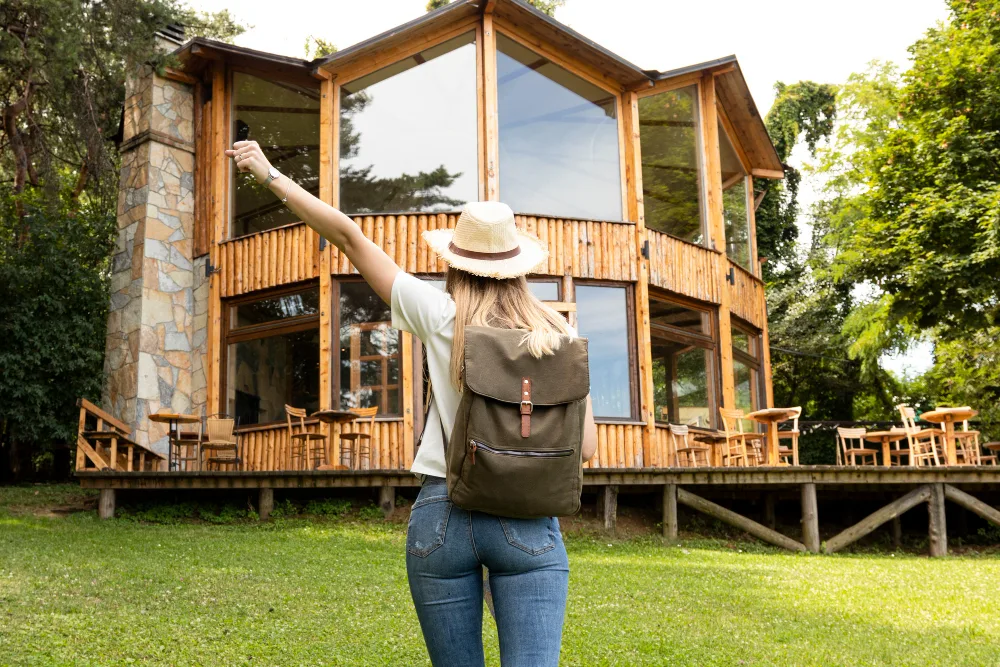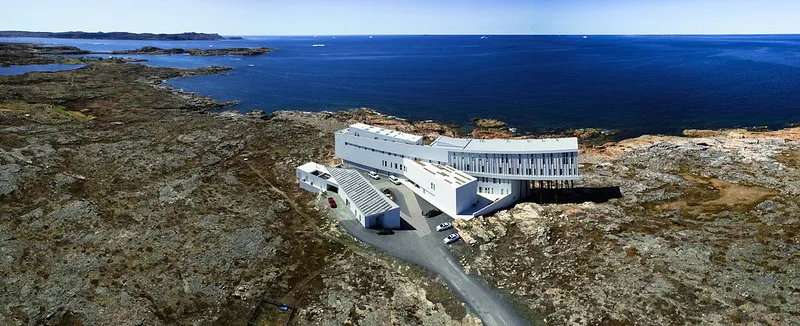Are you passionate about traveling but worried about the environmental impact? Discover how Canada is leading the way in sustainable tourism, ensuring that your adventures are both memorable and eco-friendly.
From coast to coast, Canada is dedicated to preserving its breathtaking landscapes while promoting responsible travel. Learn about the innovative policies and initiatives that are making a difference, from carbon pricing to eco-friendly infrastructure projects.

Canada’s Commitment to Sustainable Tourism
Policies for a Greener Future
Canada is dedicated to promoting sustainable tourism. The government has introduced several policies and initiatives to support this goal. They understand the importance of protecting the environment while encouraging tourism.
One key initiative is the Federal Sustainable Development Strategy (FSDS). This strategy outlines Canada’s plan to achieve sustainable development, including in tourism. The FSDS aims to reduce greenhouse gas emissions, protect natural habitats, and promote energy efficiency across all sectors.
Another important policy is the Greenhouse Gas Pollution Pricing Act. This act puts a price on carbon emissions, encouraging businesses, including those in tourism, to adopt cleaner technologies and reduce their carbon footprint. By making pollution more costly, the government hopes to drive innovation and sustainable practices.
The Investing in Canada Plan supports eco-friendly infrastructure development. This plan funds projects that enhance sustainability, such as public transportation, renewable energy projects, and green building initiatives. By investing in sustainable infrastructure, Canada aims to make its tourism industry more eco-friendly.
Certification Programs for Eco-Friendly Stays
Canada has several certification programs to encourage eco-friendly practices in hospitality. These programs set standards for sustainability and recognize accommodations that meet or exceed these standards.
One well-known certification is the Green Key Global Eco-Rating Program. This program assesses hotels and other lodgings based on their environmental performance. Properties are awarded a Green Key rating from one to five, with five being the highest level of sustainability. The assessment covers areas like energy and water conservation, waste management, and community involvement.
Another important certification is the Sustainable Tourism Eco-certification Program (STEP). This program provides guidelines and standards for sustainable tourism practices. Accommodations that meet these standards receive certification, helping them attract eco-conscious travelers. STEP certification focuses on environmental management, social responsibility, and economic sustainability.
The LEED (Leadership in Energy and Environmental Design) Certification is also significant. LEED is a globally recognized green building certification that assesses buildings based on their sustainability and energy efficiency. Many hotels in Canada strive for LEED certification to show their commitment to the environment.
Collaborations for Sustainable Tourism
To further promote sustainable tourism, the Canadian government collaborates with the private sector. These partnerships drive innovation, share best practices, and support eco-friendly tourism initiatives.
One example is the Canadian Sustainable Tourism Advisory Council. This council brings together representatives from the government, tourism industry, and environmental organizations to discuss and promote sustainable tourism practices. The council advises on policies and strategies to enhance sustainability in tourism.
Another example is the partnership with the Hotel Association of Canada (HAC). The HAC works with its members to promote sustainability and reduce the environmental impact of the hospitality industry. Through initiatives like the Green Key Global program, the HAC supports hotels in their efforts to become more eco-friendly.
The government also collaborates with organizations like Destination Canada and Parks Canada to promote eco-friendly tourism. Destination Canada markets Canada as a sustainable tourism destination, while Parks Canada manages national parks and historic sites with a focus on conservation and sustainable visitor experiences.
By working together, the government and private sector can achieve greater progress in promoting sustainable tourism. These partnerships help create a more sustainable tourism industry that benefits the environment, local communities, and travelers.
Notable Green Hotels and Eco-Lodges in Canada

Example 1: Clayoquot Wilderness Resort
Location: British Columbia
Clayoquot Wilderness Resort is located in the pristine wilderness of Vancouver Island, British Columbia. This resort is renowned for its luxurious tent accommodations that blend seamlessly with the surrounding nature.
Unique eco-friendly features:
- Uses solar power to meet its energy needs.
- Has a comprehensive recycling and composting program to minimize waste.
- Offers locally sourced, organic cuisine to support local farmers and reduce carbon footprint.
- Operates with a low-impact approach to protect the local environment and wildlife.
- Provides eco-education programs for guests to learn about sustainability and conservation.
Awards and recognitions:
- Recipient of multiple eco-tourism awards for sustainability and luxury.
- Recognized by the Rainforest Alliance for its commitment to conservation.
- Featured in numerous travel magazines as a top eco-friendly resort.
Example 2: Fogo Island Inn
Location: Newfoundland and Labrador
Fogo Island Inn is located on a remote island off the coast of Newfoundland and Labrador. This stunning inn is known for its modern architecture that integrates with the natural landscape.
Unique eco-friendly features:
- Uses geothermal heating and solar panels to reduce energy consumption.
- Collects rainwater and implements water conservation measures.
- Built with locally sourced and sustainable materials.
- Supports local artisans and craftsmen by featuring their work throughout the inn.
- Emphasizes locally sourced food and has its own vegetable garden.
Awards and recognitions:
- LEED Gold certification for its sustainable building practices.
- Named one of the world’s most environmentally friendly hotels by various travel publications.
- Awarded for its contributions to the local community and economy.

Author : Pierre Lesage – flickr.com
Example 3: Le Germain Hotel Charlevoix
Location: Quebec
Le Germain Hotel Charlevoix is situated in the picturesque region of Charlevoix, Quebec. This hotel combines modern luxury with sustainable practices in a rural setting.
Unique eco-friendly features:
- Utilizes a geothermal heating and cooling system to minimize energy use.
- Implements energy-efficient lighting and appliances throughout the property.
- Operates a comprehensive recycling and composting program.
- Uses sustainably sourced materials for construction and decor.
- Promotes local culture by collaborating with local artists and showcasing their work.
Awards and recognitions:
- Received Green Key Global certification for its sustainability efforts.
- Awarded for its innovative design and eco-friendly practices.
- Recognized as one of the top eco-friendly hotels in Canada by travel experts.

Author : Jeangagnon – wikimedia.org
These examples illustrate how Canada’s green hotels and eco-lodges are leading the way in sustainable tourism. By integrating eco-friendly practices into their operations, these accommodations offer guests a luxurious stay while minimizing their impact on the environment.
Conclusion
Canada is a pioneer in sustainable tourism, implementing comprehensive and innovative policies. Key initiatives like the Federal Sustainable Development Strategy and the Greenhouse Gas Pollution Pricing Act are at the forefront of these efforts. The Investing in Canada Plan is pivotal in funding eco-friendly infrastructure projects nationwide. Prestigious certification programs such as Green Key Global and LEED set the benchmark for sustainability in the hospitality sector. Synergistic collaborations between the government and private sector foster innovation and enhance eco-friendly tourism practices.
FAQs
What is the Federal Sustainable Development Strategy?
The Federal Sustainable Development Strategy (FSDS) is Canada’s plan to grow while protecting the environment. It focuses on reducing greenhouse gases, saving natural areas, and using energy more efficiently.
How does the Greenhouse Gas Pollution Pricing Act help sustainable tourism in Canada?
This act makes businesses pay for pollution. This pushes them, including those in tourism, to use cleaner technologies and lower their carbon emissions, making tourism more eco-friendly.
What is the Investing in Canada Plan?
The Investing in Canada Plan funds projects to build green infrastructure like public transport, renewable energy, and eco-friendly buildings. This supports sustainable tourism.
What is Green Key Global?
Green Key Global is a certification program for hotels that follow eco-friendly practices. It helps hotels become more sustainable, making tourism greener in Canada.